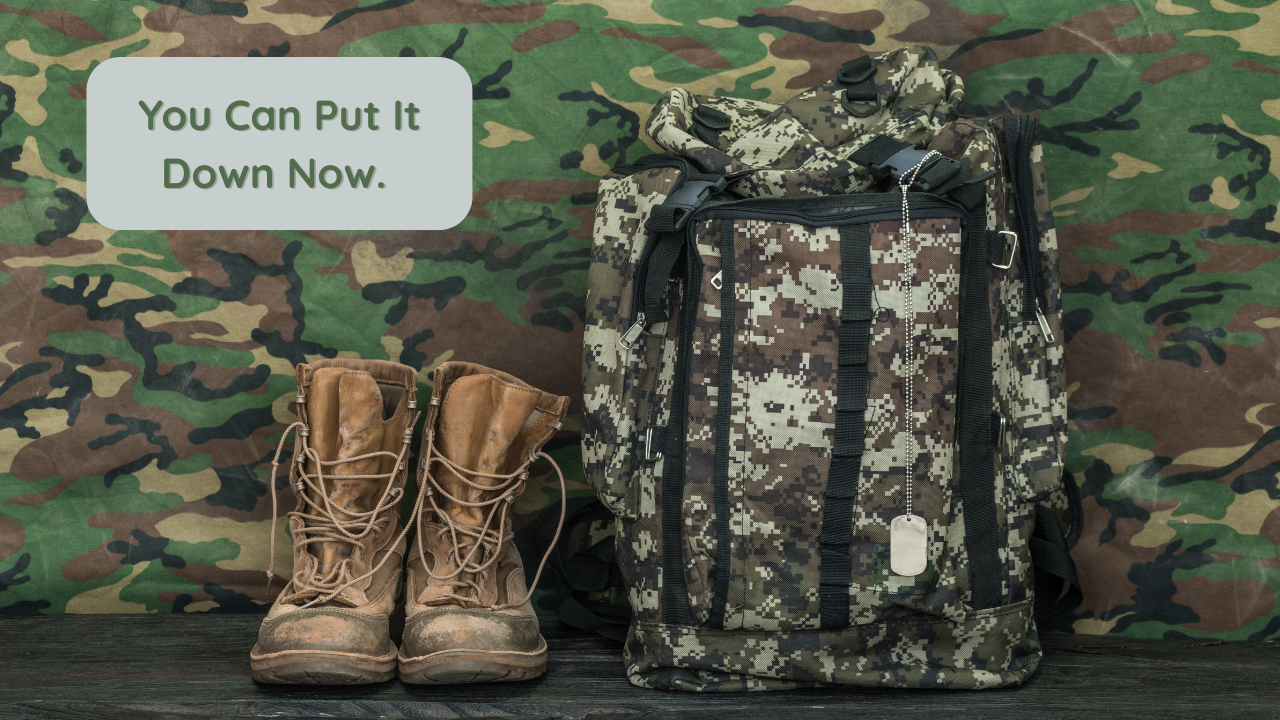Letting Go of Emotional Baggage
Jun 01, 2025
You know that moment when you take off a heavy backpack and realize just how much lighter you feel? Not just physically, but emotionally, too?
Most of us are carrying more than we realize.
Old conversations. Unspoken guilt. Words we swallowed. Times we didn’t cry when we needed to. We pack it all up quietly and keep moving — because life doesn’t always give us a place to stop, unpack, and rest.
Here’s the truth: emotional baggage carries real weight. Sometimes more. And when you finally start to let it go, the shift can be surprisingly immediate — like breathing deeply for the first time in weeks.
You Might Not Even Know You’re Carrying It
Emotional weight often shows up quietly. Not as one big moment, but in small, everyday ways.
Snapping at your kids over something small
Avoiding a conversation you know matters
Feeling exhausted before the day even begins
Saying “I’m fine” when you’re definitely not
It builds slowly. Bit by bit. And most of us are taught to carry it without complaint — especially if we’re the ones others rely on.
But just because you can carry it doesn’t mean you should.
The Rucksack We Didn’t Know We Were Wearing
When my son went through basic training with the Army National Guard, one of his final challenges before graduation was a multi-day ruck march.
He had to hike for miles across uneven terrain, several days in a row, with a 50-pound rucksack strapped to his back. No shortcuts, no excuses. Just steady, determined movement. Everyone had to do it. It was part of the requirement — part of proving they had what it took.
He did it. And I remember what he said afterward — how deeply relieved he felt when it was finally over. That moment of taking the weight off, knowing he’d carried it as far as he needed to, and that he could now rest.
That image has stayed with me, because it’s such a clear reflection of how emotional baggage works. So many of us are doing the internal version of that hike every single day. Carrying what we’ve been told we should carry. Pushing forward because we think we have to.
And we do it for a long time — until something in us says: you can put that down now.
What Happens When You Finally Let It Go?
Letting go doesn’t mean forgetting. It doesn’t mean pretending it didn’t happen.
It means releasing your grip on the belief that you have to keep carrying it.
It means recognizing that what you went through mattered — and also, that you are allowed to let some of it go.
When people begin to let go, I often notice a few things. They cry or laugh from relief. They soften — their shoulders, their breath, their voice. They feel clearer — even if nothing else around them has changed. Sometimes they say, “I didn’t realize how much I’d been holding.”
And that makes perfect sense. We get so used to the weight that we forget it’s even there — until we feel what it’s like to live without it.
You’re Not Weak for Wanting to Let Go
One of the hardest parts about emotional weight is how invisible it is. If you had a cast on your leg or bruises on your arms, no one would question your need for rest. But emotional injuries — grief, betrayal, fear, shame — don’t always show.
So instead of getting help, we get praised for being “strong.”
But I want to tell you this:
Letting go isn’t weakness. It’s wisdom.
And strength isn’t measured by how much you carry — it’s measured by knowing when it’s time to set it down.
Releasing Emotional Weight Begins Gently
You don’t need a major life change to begin. You just need a small invitation. Here are a few gentle ways to begin:
Notice What Feels Heavy
Ask yourself: What am I still holding that no longer belongs to me?
Maybe it’s someone else’s expectations. Maybe it’s a moment you never processed. Naming it doesn’t fix everything, but it’s the first sign you’re ready.
Find a Safe Place to Unpack
This might be a trusted friend. A therapist. A journal. Or even a quiet drive where you let yourself cry without needing to explain it to anyone.
You don’t have to tell the whole story at once. You don’t have to turn it into a lesson. Just let the weight be seen.
Speak Kindly to Yourself
You might be tempted to say, I should’ve dealt with this already. But that kind of self-talk just adds more to the load.
Try this instead:
I’ve carried what I needed to. And now, I’m allowed to put it down.
What You’re Feeling Makes Sense
This world doesn’t always make room for emotional honesty. We’re told to tough it out, keep going, and not make a fuss. But emotional weight doesn’t disappear just because we ignore it. It gets stored — in our bodies, in our reactions, in our relationships.
You might not even know what’s still lingering until one quiet moment when you finally feel safe enough to ask: Is this still mine to carry?
Letting go doesn’t mean you failed. It means you’re listening to yourself.
It means you’re ready for relief.
If You Need a Safe Place to Begin…
That’s what I offer at HOLD. A space where you can talk without interruption, cry without shame, and finally let go of what you’ve been quietly carrying.
If you’re ready to feel calm, comfort, and clarity again — even if just for 30 minutes — you can book a confidential listening appointment here:
👉 https://www.hearingoutlifedrama.com/book-online
We’re not here to fix you. You’re responding to your experiences with awareness. We’re just here to listen, so you can finally let some of it go.
